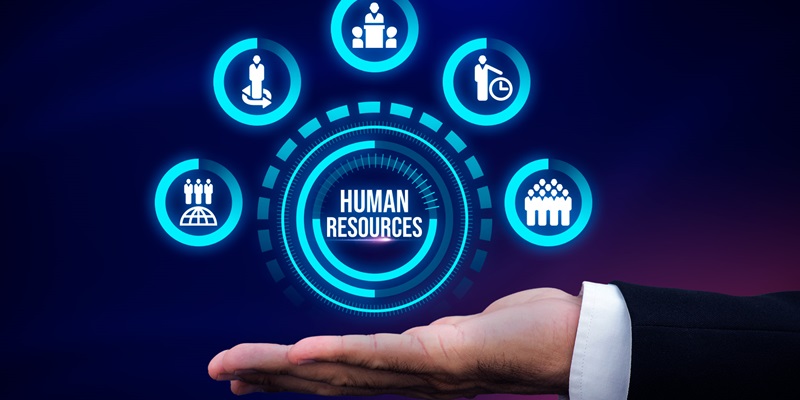In today’s fast-paced business landscape, harnessing the power of technology is crucial for organizations of all sizes and sectors. Human Resources (HR) technology, commonly referred to as HR tech, has emerged as a game-changer that streamlines processes, enhances productivity, and improves recruitment and retention strategies. From optimizing hiring practices to fostering employee well-being, the potential impact of HR tech is immense. In this article, we will explore the various facets of HR tech and its transformative role in shaping the future of work.
The Impact of Lengthy Hiring Processes
In an era characterized by digital connectivity and instant gratification, lengthy hiring processes can be detrimental to attracting and securing top talent. Research shows that if the hiring process exceeds a certain duration, more than three-quarters (78%) of candidates will lose interest and seek opportunities elsewhere. Recognizing the significance of efficiency and speed in hiring, organizations need to prioritize streamlined processes that minimize delays, leverage technology, and create positive candidate experiences.
Clock-in Functionality for Remote Work
As remote work becomes increasingly prevalent, organizations must adapt their HR tech offerings to cater to distributed teams. Clock-in functionality, particularly when available in the form of mobile applications, plays a critical role in ensuring employee productivity and accountability regardless of their location. By providing a seamless mechanism for employees to track their work hours, stay organized, and manage their tasks, this functionality enables organizations to effectively monitor remote work arrangements.
Holistic Employee Wellbeing
In the evolving world of work, employee wellbeing is gaining significant attention. HR solutions of the future will prioritize holistic employee wellbeing platforms that foster mental health, provide wellness programs, and offer counseling services. By investing in comprehensive and proactive wellbeing initiatives, organizations can boost employee satisfaction, engagement, and overall productivity. In 2024, we anticipate a growing need for HR tech that caters to diverse employee wellbeing needs, ultimately fostering a healthier and more motivated workforce.
Data Security and Compliance Management
As organizations increasingly rely on technology for HR functions, the need for robust data security and compliance management tools becomes paramount. Safeguarding sensitive employee information and ensuring regulatory adherence are vital for maintaining trust, protecting privacy, and avoiding potential legal infringements. HR tech solutions must incorporate advanced data security features and compliance management tools to effectively address these concerns.
Employee Benefits Platforms for Engagement and Retention
Engaging and retaining talent is a key challenge for organizations. Easy-to-use benefits platforms that provide employees with access to a wide range of discounts and offers, from entertainment to technology to groceries, have proven to be effective tools. By offering these perks, organizations can enhance employee satisfaction, increase loyalty, and establish a culture of recognition and reward.
Investing in e-Learning Technology
Continuous learning and development are integral to nurturing talent and ensuring the long-term success of organizations. Investing in e-learning technology empowers employees to expand their skills, stay relevant in a rapidly changing business landscape, and contribute to their professional growth. By embracing e-learning platforms, businesses can cultivate a culture of continuous improvement and unlock the potential of their workforce.
Employee Recognition Platforms for Incentivization
Recognizing and appreciating employees’ contributions is vital for fostering a positive work environment and motivating high performance. An employee recognition platform enables employees to celebrate their colleagues, reinforcing a culture of appreciation and camaraderie. By providing a simple and accessible platform for peer recognition, organizations can boost morale, increase employee engagement, and drive productivity.
AI in the Workplace
Artificial Intelligence (AI) has emerged as a transformative force across various industries, and its integration into HR processes is no exception. Business owners are increasingly considering the benefits and challenges associated with incorporating AI into their HR tech systems. AI-powered tools can automate repetitive tasks, enhance data analysis, and improve decision-making processes. However, it is crucial for organizations to be mindful of the potential risks and ethical considerations associated with AI implementation.
Proactive Measures to Mitigate Risks of AI Implementation
As AI becomes more prevalent in the workplace, organizations must adopt proactive measures to maximize its benefits and mitigate potential risks. It is recommended that organizations explore the utilization of AI while simultaneously taking proactive steps to ensure ethical use, data privacy, and fairness. Collaboration between HR professionals and AI experts can help design responsible AI systems that align with organizational values and consider the potential impact on employees.
HR tech has the power to revolutionize businesses of all sizes and sectors by streamlining processes, boosting productivity, and nurturing talent. From optimizing hiring practices to prioritizing employee wellbeing and leveraging AI, organizations must embrace HR tech as a strategic enabler for achieving long-term success. By harnessing the potential of technology and adopting forward-thinking strategies, businesses can unlock the full potential of their workforce, attract top talent, and thrive in an increasingly competitive landscape. With the right HR tech solutions in place, organizations can forge a path towards enhanced productivity, improved employee satisfaction, and sustainable growth.

